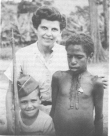Too Ugly to Love: The Story of Dorie Van Stone

She was too ugly to be loved by anyone
Dorie was absolutely sure that this was true. After all, her mother told her so every time she brushed away Dorie’s attempts to hug her or sit on her lap. “Why can’t you be pretty, like your sister?” she’d ask, pushing her away, and Dorie would once again find a place to hide and weep.
Dorie’s earliest memories are of long, lonely hours spent in the apartment while Mother was working. At only six years old she was left to care for her little sister all day. Often her mother would not return until evening. The girls were not allowed to turn on the lights, and so they waited in the dark, straining their eyes as they looked out the window to catch the first glimpse of Mother returning home. They were often hungry. Dorie made peanut butter sandwiches when she could, but they often did without when the pantry was empty. Father was not in the picture, leaving their 21 year-old mother to provide for two children during the Great Depression. Times were grim, and Dorie bore the brunt of her mother’s frustration.
She bore it, that is, until one day when Mother announced, “Children, your father and I can’t take care of you, so you are going to a home you will enjoy.” Mother didn’t cry when she said goodbye at the orphanage.
If life was hard at home, it was doubly hard in the orphanage. For the seven years she would stay there, every night without fail—every night—she was beaten before she went to bed. Sometimes it was for a minor infraction like refusing to eat everything on her plate. Other times it was for bullying the other children. Dorie decided that if she couldn’t be loved, she could at least be feared. Her tough, angry facade insured that no one would get close enough to hurt her again.
But she was hurt, over and over. When people planning to adopt would visit the orphanage, all the children were lined up for inspection. Visitors would coo over the attractive children. No one cooed over Dorie. First one child and then another would leave with new parents, but Dorie remained, “Too ugly to love” once again.
One day, some students from a nearby university came to the orphanage to tell Bible stories and talk to the children about Jesus. They explained the Gospel, and assured the children that they could experience God’s love.
“Loved by God?” Dorie thought. “Is it possible that God could love me?” The Holy Spirit drew Dorie, and she prayed for the first time. “God,” she said, “If you love me, you can have me.” Within two weeks, God brought a new Christian worker to the orphanage. She invited Dorie to attend church with her and Dorie soaked up everything she could learn. The new matron gave her the only present she had ever received, a small New Testament. Dorie read it over and over, underlining and memorizing key passages.
At thirteen, Dorie was sent to a foster home. The cruelty there was unspeakable. She was abused, and allowed to bathe only once a month. The children at school called her “Stinky.” The next foster home was just as awful. Finally, Dorie got a job as a maid for a kind family and was able to work for her board and finish school. She studied art, and landed a lucrative job drawing plans for architects.
World War Two had just ended, and the country was returning to normal. Soldiers and POWs who survived the war slowly made their way home. POW Darlene Rose had just stepped off the boat, still in the clothing the Red Cross had issued, when she was whisked away to speak at a missionary meeting that Dorie attended. For the crime of teaching the Gospel in New Guinea, Darlene spent eight years under arrest, four of them in a Japanese internment camp. She suffered separation from her husband, near-starvation, forced labor, serious illness, months of solitary confinement, and torture. She lost everything—every possession, her health, and her husband.
After she told her story of unimaginable suffering, she stood before the audience and solemnly declared, “For Jesus’ sake, I would do it again.” Dorie was considering a career in missions, and this statement resonated in her heart. “Yes,” she said, “For Your sake, Jesus, I’ll do it.”
Dorie met Darlene after the conference. When Darlene’s parents heard Dorie’s story, they told her, “From now on, we are not Mr. and Mrs. MacIntosh. We are Mother and Daddy Mac. If you ever need a mother or daddy to talk to, we are here.” They offered her a home, and Darlene became a trusted friend and mentor. At 21 years old, Dorie had finally been chosen for adoption.
God gave Dorie a husband who loved her and shared her desire to go to New Guinea. On the field, God helped Dorie to see that He had perfectly fitted her for this ministry. The people there were often cruel. She knew what it was like to both give and receive cruelty. The people there were unwashed and unlovely. Dorie knew what that felt like, too. She was able to see past those things and identify with the Dani people. She could love them, because despite everything, God loved her.
Dorie’s story is told in the books, Dorie, The Girl Nobody Loved, and No Place to Cry, both by Erwin Lutzer and Doris Van Stone. Revive Our Hearts Radio features an interview with Dorie. http://www.reviveourhearts.com/ Photo used with the permission of Moody Press.

